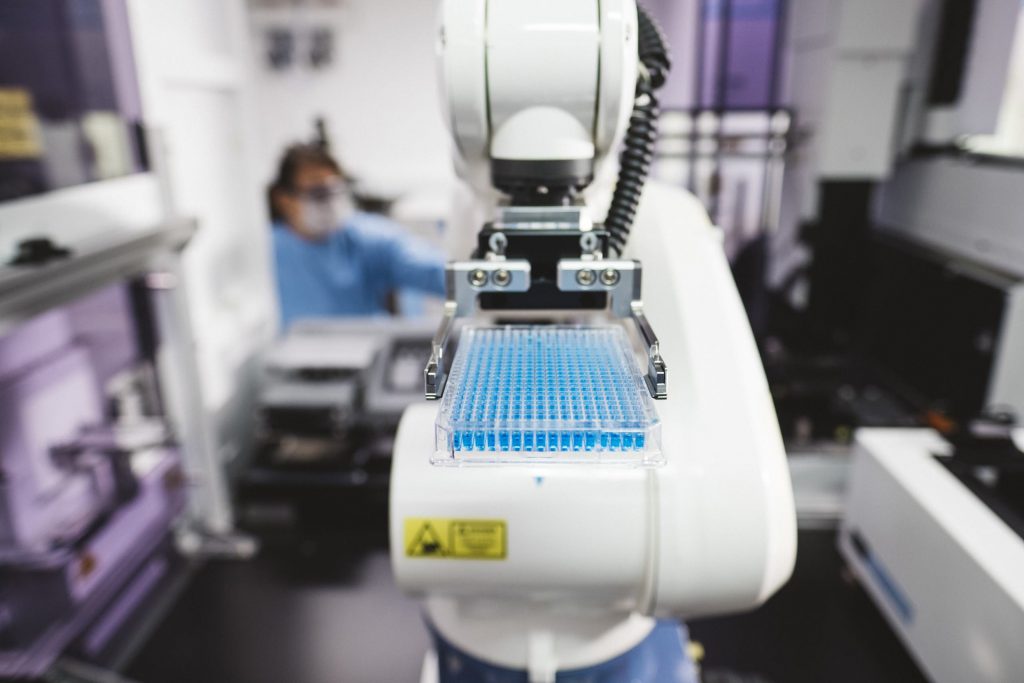- Home
- /
- LNBio
Brazilian Biosciences National Laboratory (LNBio)
About LNBio
 The Brazilian Biosciences National Laboratory (LNBio) is dedicated to the study of human health, combining integrative biology with advanced technologies. With competencies in gene editing, microphysiological systems, bioimaging, and tissue engineering, LNBio works to discover molecular targets and develop innovative therapies for various illnesses that are of public importance.
The Brazilian Biosciences National Laboratory (LNBio) is dedicated to the study of human health, combining integrative biology with advanced technologies. With competencies in gene editing, microphysiological systems, bioimaging, and tissue engineering, LNBio works to discover molecular targets and develop innovative therapies for various illnesses that are of public importance.
This broad approach, which includes molecules and living organisms, unravels molecular mechanisms to identify bioactive compounds that are essential to developing new active pharmaceutical ingredients. LNBio concentrates its efforts on demands from the public health system, using state-of-the-art infrastructure and a matrix work model to promote innovation and development at the crossroads between science and health.
To integrate health with socioeconomic and environmental factors, LNBio serves as a scientific platform that is available to the government, able to develop advanced technologies that respond to strategic issues. LNBio is part of the Brazilian Center for Research in Energy and Materials (CNPEM) in Campinas, São Paulo, a private, non-profit organization overseen by the Ministry of Science, Technology, and Innovation (MCTI).
LNBio director
 Maria Augusta Arruda has been the director of LNBio since July 2023. She has worked as a researcher at FIOCRUZ and a professor at Rio de Janeiro State University (UERJ), and led the Brazil/University of Nottingham (UK) Partnership in Drug Discovery.
Maria Augusta Arruda has been the director of LNBio since July 2023. She has worked as a researcher at FIOCRUZ and a professor at Rio de Janeiro State University (UERJ), and led the Brazil/University of Nottingham (UK) Partnership in Drug Discovery.
She was later responsible for the strategic relationship between the University of Nottingham and UK Research and Innovation, and more recently served as Head of Researcher Development and President of the Racial Equity Network at that same institution.
Maria Augusta is an Affiliate Fellow at Robinson College, Cambridge, and an Elected Fellow of the British Pharmacological Society.
She brings with her nearly 30 years of experience in research environments and a commitment to an empathetic, responsible, and ambitious research culture that supports the scientific community to reach its potential through transdisciplinarity, with collaborations at the domestic and international levels.
CNPEM
The Brazilian Center for Research in Energy and Materials (CNPEM) is home to a state-of-the-art, multi-user and multidisciplinary scientific environment and works on different fronts within the Brazilian National System for Science, Technology and Innovation. A social organization overseen by the Ministry of Science, Technology and Innovation (MCTI), CNPEM is driven by research that impacts the areas of health, energy, renewable materials, and sustainability. It is responsible for Sirius, the largest assembly of scientific equipment constructed in the country, and is currently developing Project Orion, a laboratory complex for advanced pathogen research. Highly specialized science and engineering teams, sophisticated infrastructure open to the scientific community, strategic lines of investigation, innovative projects involving the productive sector, and training for researchers and students are the pillars of this institution that is unique in Brazil and serves as a bridge between knowledge and innovation. It is responsible for operating the Brazilian Synchrotron Light (LNLS), Biosciences (LNBio), Nanotechnology (LNNano), and Biorenewables (LNBR) National Laboratories, as well as the Ilum School of Science, which offers a bachelor’s degree program in science and technology with support from the Ministry of Education (MEC).
Work with us
At CNPEM, we bring together unique strengths to drive science and technology. If you are looking for a position that corresponds to your talent, here you will find incredible opportunities.

